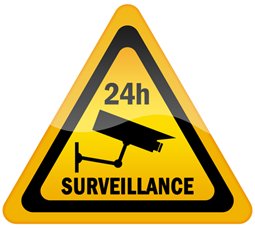Trusting in Surveillance
By Dr. Henry Wong Meng Yeong | Wednesday, October 16, 2013

We continue our discussion on trust, the corner stone of relationships, relationships between parent and child, between siblings, employer and employee and between friends. It is the foundation of human relationships and drives business and the investments. We are reminded of the Chinese word for trust 信which is a pictogram composing of two words 亻meaning a man and 訁his word. Can one’s word be banked on and honored, that is the essence of trust.
The availability of electronic surveillance by way of smart phones, laptops and computers has undermined this important virtue we refer to as trust. Confucius stated emphatically that a person who is untrustworthy is of no use. Instead of spending an inordinate amount of resources, time and money tracking errant behavior, Confucius believes that nurturing integrity and building trust should be the approach.
Jalelah Abu Baker wrote in the Straits Times (October 14) that eight out of ten private investigation agencies in Singapore have reported an increase in the number of parents hiring private eyes to check on their teenage children’s behavior locally and overseas. Not only have these parents relied on electronic eyes to monitor their children’s movements but have even turned to private investigators underscoring the level of mistrust. Confucius stresses the importance of upbringing and nurturing virtues from young. Should parents and employers place their faith in tracking devices or should they instead build trust in their children and foster a culture of trust in their corporations?
A poignant illustration is an account of a foreign delegation from an education ministry to Japan in which one of the delegates carelessly disposed of a cigarette butt by dropping it on the ground. A Japanese child walked up to him, tugged at his trousers to engage his attention, picked up the extinguished cigarette stub, walked over to the bin and disposed of it in the intended repository. The message was a powerful one. In spite of the fact there was no surveillance cameras in sight, no fines, no visible rules against anti-littering, yet the child behaved in an exemplary manner and shamed the errant adult, a lesson he probably would never forget.
The lesson from Confucius is to develop and nurture core values and integrity in gentry who will do the right thing even when the rules are out of sight. Conversely, people who only know regulations and punishment for their wrongdoing will not have a sense of propriety and shame.
This is especially relevant in today’s society in which technology has enabled one to spy on anyone, even one’s offspring whom one does not trust. To quote President Ronald Reagan “Nations do not mistrust each other because they are armed; they are armed because they mistrust each other.”
Do we therefore trust our children and employees because we have surveillance on them or do we trust them in spite of not having devices to monitor and track their every movement?
The discussion continues.
